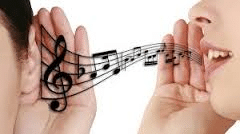By Maurice H. Miller, Ph.D.
The creators of various nutritional supplements often make claims of being able to treat and cure hearing loss and tinnitus with antioxidants. They suggest that their treatment modalities will result in eliminating the need for hearing aids. Those of us who have been around for some time can attest to similar, scientifically unconfirmed claims, that vitamins of various types can cure tinnitus and hearing loss.
So why go to the expense of purchasing hearing aids and supplies, when an over-the-counter product can cure the problem?
Free Radicals
There is no question about the action of antioxidants and free radicals.
Free radicals are atoms with an unpaired number of electrons that are formed when oxygen interacts with specific molecules. They can cause damage when they interact with critical cellular components such as DNA or the cell membrane. It is believed (by some) that specific antioxidants can safely interact with free radicals and terminate the chain reaction before critical molecules are damaged.
The chief free radical scavengers are believed to be vitamin E, beta carotene, and vitamin C. Selenium, a trace metal believed to be required by the body’s antioxidant enzyme system, may also be necessary. Widely used to enhance athletic abilities, their efficacy in treating tinnitus and hearing loss has not been established.{{1}}[[1]]Clarkson, P (1995). Antioxidants and Physical Performance. Crit Rev Food Sci Nutr. 35(1-2):131-41.[[1]]
What’s wrong with a free radical when hearing aids cost so much?
As I write this, would readers permit me a moment of comic recollection? I write of “free radicals” and think back to my days as an undergraduate student at Brooklyn College. The term free radicals was then more likely to mean “free the radical students,”pro-communist students who were laying siege to the office of the college president… But, now let’s return to free radicals as an alleged treatment of hearing loss and tinnitus.
What’s Old Is New (Again)

Are some of today’s vitamin-cure claims for hearing loss any less outrageous? Image Courtesy weburbanist
I am old enough, and hopefully wise enough, to recall the many past and unsuccessful efforts to restore hearing through nutritional means.
There were hearing aid dealers of the past who advertised vitamins on their counters and made claims of hearing restoration. So why shouldn’t false claims continue?
Hearing aids are forever described in such advertisements as unnecessary and unappealing. Who wants to be tied to an electronic device requiring periodic replacement of batteries when the “right” food or vitamin can restore your hearing? Yes, step up, take a vitamin and get your hearing back–no need for thousands of dollars on a new hearing aid.
Readers, you wouldn’t believe what people with hearing loss were actually once told about how to restore their hearing. Among the more outlandish claims were the following: “Heat your urine using two dishes and use the water that boils off in the ear” and “Surgically catheterize the ear and wash it out with gas or water–this will cure acquired, non-congenital hearing loss.”
Over the years, many other unbelievable claims were once touted as “cures” for deafness–with no credible scientific evidence backing such claims, of course.
Enough comments for this entry. Please tell me what you think, especially those who have been around for generations and have witnessed trends in audiological misdiagnosis.
*title image courtesy Nathan Lee
Maurice H. Miller, PhD, is Professor Emeritus of Audiology, New York University Steinhardt School of Culture, Education and Human Development. Throughout his career, he has directed programs in Communication Disorders at some of the nation’s leading medical and academic institutions. Dr. Miller has authored five books, over 120 articles in peer-reviewed journals, and numerous monographs and chapters in widely used audiology textbooks.








